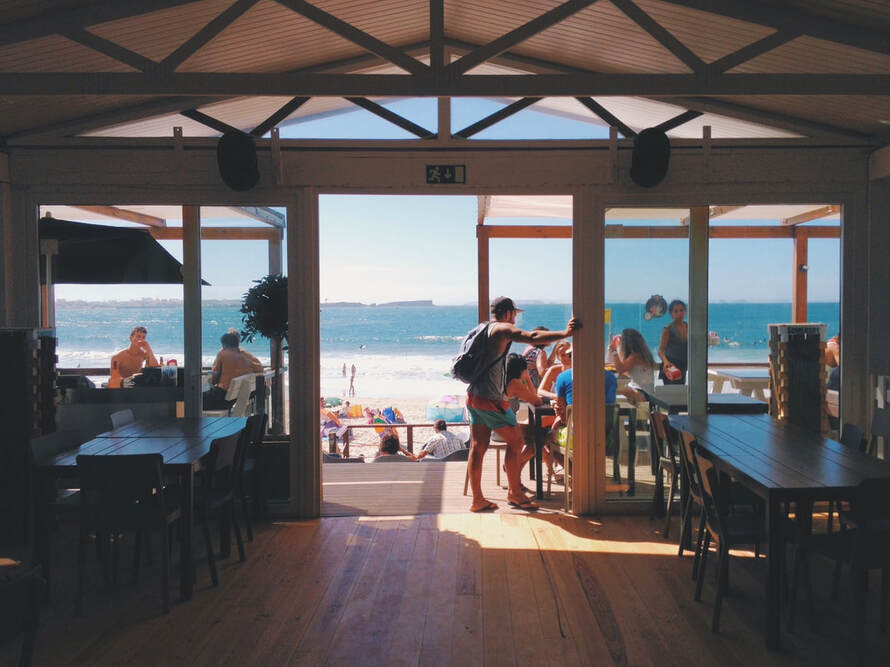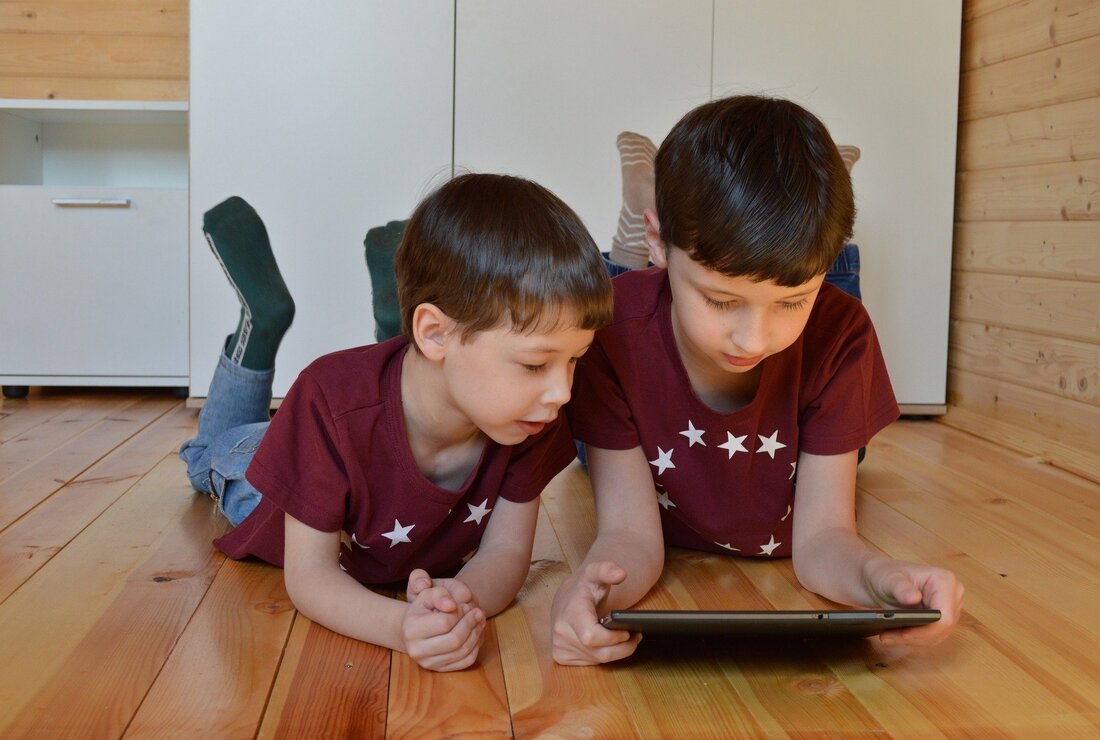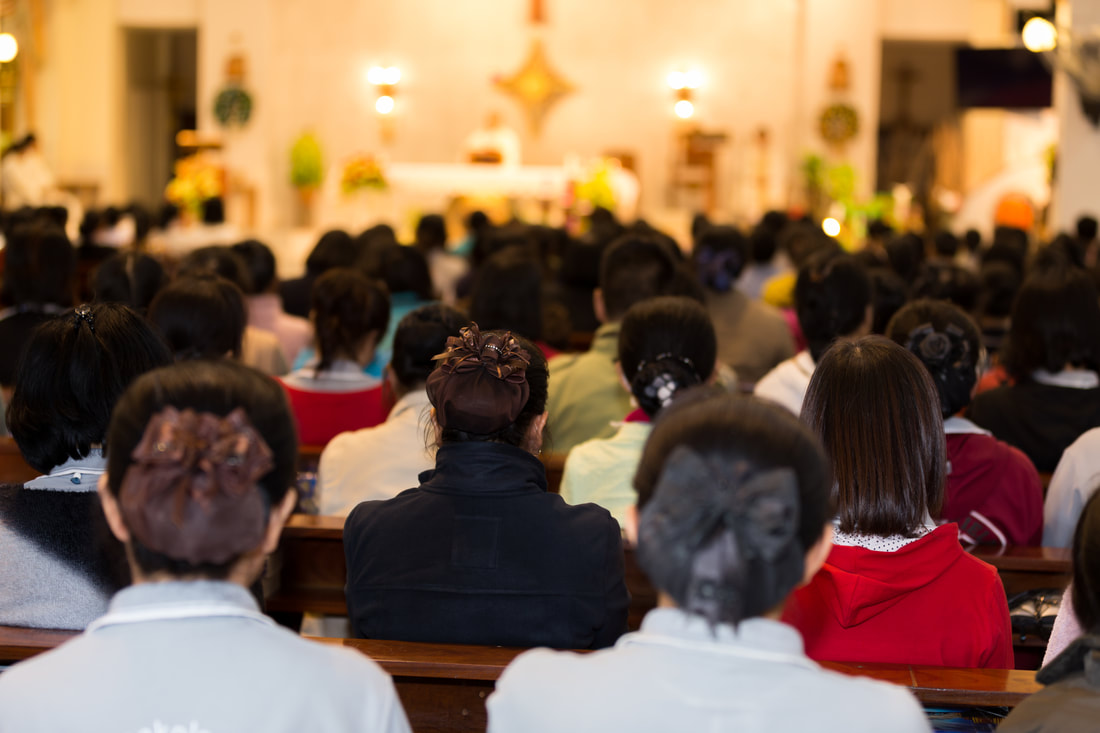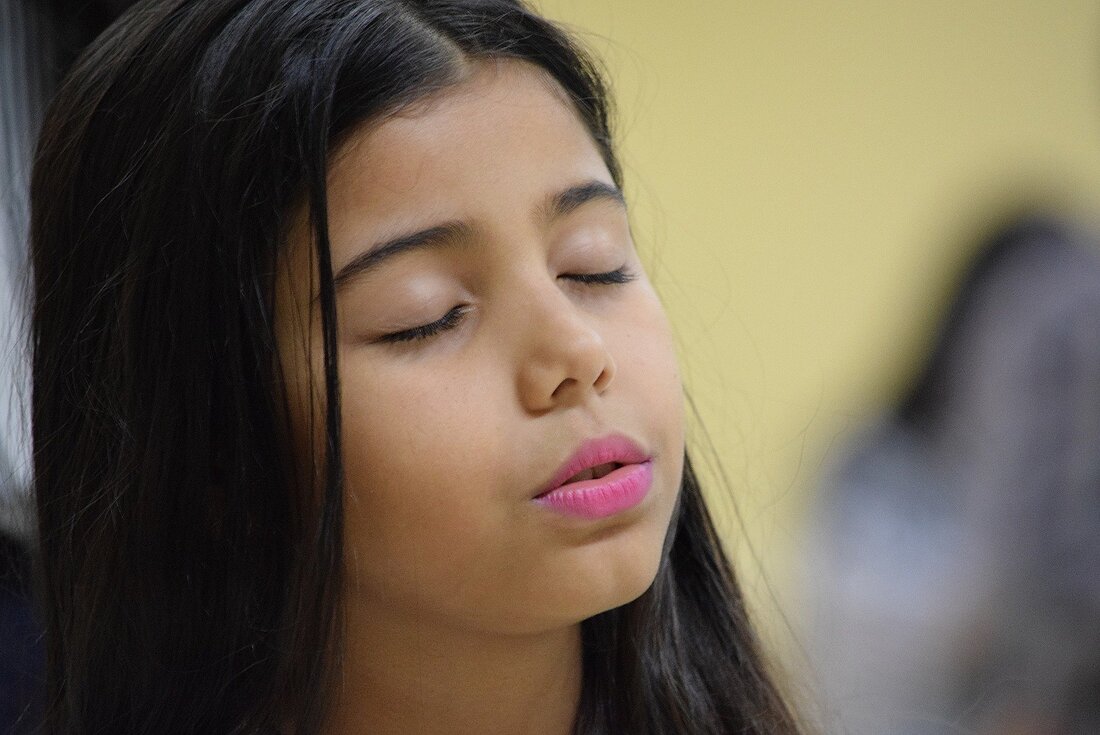Our Family at Mass in the Age of Technology
The following article appeared in the 2019 Summer edition of Liturgy News. None of us could have foreseen the changes that were about to take place which prevented us from attending the liturgy for many months.
It is interesting now to re-read Stephen Locke's article, reflecting on the fact that technology has attained an even more central place in our lives, as a result of
not being able to physically gather for work, for recreation or for worship.
The question posed in this article is perhaps even more pertinent now that we have experienced a forced absence from the liturgy:
"Can anything be done that might invite people back into the liturgical space?"
By Stephen Locke
The alarm goes and I grope at the bedside table to turn it off. It is 5:50 on Sunday morning and the weekly ritual of getting our family to Mass begins. Yes, you read that correctly, 5:50 am. You see our preferred Mass time is 6:30 Sunday morning and yes, our parish still offers such an early time. Maybe saying it is our family’s preferred Mass time is a stretch – maybe it is simply my preferred Mass time – because trying to get three school-aged children up and out the door this early on a Sunday morning is not always easy. It never ceases to amaze me that our children willingly rise at 5:30 almost every day so they can run up and down the hall, fight, yell, come in and wake us up, and generally be busy, yet come Sunday morning it is like trying to raise the dead!
The usual responses come from under rumpled sheets and doonas: I don’t want to go to Mass! Mass is boring! I’m tired! It is particularly difficult during winter when it is cold and dark. However through perseverance and the occasional threat or bribe, we find ourselves in the car for the short ride to the church, mostly on time. While driving to Mass, I often see bike riders on their early morning ride and wonder if that would be a better use of my time, especially as a lack of cars on a Sunday morning makes riding a much more pleasant experience. No doubt some of those riding will stop for coffee with friends at local cafes, catching up over smashed avo on sourdough toast. What is not as common nowadays is to find these same people at Mass.
The alarm goes and I grope at the bedside table to turn it off. It is 5:50 on Sunday morning and the weekly ritual of getting our family to Mass begins. Yes, you read that correctly, 5:50 am. You see our preferred Mass time is 6:30 Sunday morning and yes, our parish still offers such an early time. Maybe saying it is our family’s preferred Mass time is a stretch – maybe it is simply my preferred Mass time – because trying to get three school-aged children up and out the door this early on a Sunday morning is not always easy. It never ceases to amaze me that our children willingly rise at 5:30 almost every day so they can run up and down the hall, fight, yell, come in and wake us up, and generally be busy, yet come Sunday morning it is like trying to raise the dead!
The usual responses come from under rumpled sheets and doonas: I don’t want to go to Mass! Mass is boring! I’m tired! It is particularly difficult during winter when it is cold and dark. However through perseverance and the occasional threat or bribe, we find ourselves in the car for the short ride to the church, mostly on time. While driving to Mass, I often see bike riders on their early morning ride and wonder if that would be a better use of my time, especially as a lack of cars on a Sunday morning makes riding a much more pleasant experience. No doubt some of those riding will stop for coffee with friends at local cafes, catching up over smashed avo on sourdough toast. What is not as common nowadays is to find these same people at Mass.
Attendance at the Sunday Mass has been falling steadily for decades. This is well documented and there are many reasons for it. The refrain of our children is one I often hear from adults: that Mass is boring, it doesn’t resonate, I don’t experience God that way, and I’ve got other things to do. At one level this is true, but the Eucharist is not entertainment for the pleasure of the masses. It is imbued with deep meaning, replete with symbolic ritual and gestures which speak to something beyond the participants and which invite them into community with God and others. It has stiff competition.
In our modern technological life, everyone and everything is on 24/7. We have at our fingertips access to more information than ever before through devices such as iPads and iPhones. Want to watch your favourite movie, sport or TV show? Simply click or tap onto your preferred streaming service and watch at your leisure. Social media provides a constant stream of news and content to be viewed, consumed and interacted with; games of all sorts keep people occupied for hours. Although the internet and wireless devices might have intensified the experience, technology has been exerting its influence for decades, starting with the advent of television, quickly followed by MTV, video, DVD, and computers. With such media and stadium concerts, for the last 50 years we have been entertained and have come to expect to be entertained. Staring at the ubiquitous screen has become a defining image of our time. In this context attending the Eucharist could be seen as counter cultural. It bucks the trend, but can it compete and should it try? What draws a person to communal prayer and worship and what benefit might it have?
In our modern technological life, everyone and everything is on 24/7. We have at our fingertips access to more information than ever before through devices such as iPads and iPhones. Want to watch your favourite movie, sport or TV show? Simply click or tap onto your preferred streaming service and watch at your leisure. Social media provides a constant stream of news and content to be viewed, consumed and interacted with; games of all sorts keep people occupied for hours. Although the internet and wireless devices might have intensified the experience, technology has been exerting its influence for decades, starting with the advent of television, quickly followed by MTV, video, DVD, and computers. With such media and stadium concerts, for the last 50 years we have been entertained and have come to expect to be entertained. Staring at the ubiquitous screen has become a defining image of our time. In this context attending the Eucharist could be seen as counter cultural. It bucks the trend, but can it compete and should it try? What draws a person to communal prayer and worship and what benefit might it have?
Returning to the drive, I find myself arriving at Mass and sitting in church. It is mainly older people, but I know their faces and where they sit, even if I don’t know their names. They are my community, people whom I have come to recognise through being at Mass each week. They know us and they know our kids. They have always taken delight in seeing the kids at Mass and have watched them grow. They have celebrated baptisms, confirmations and first communions with us.
Every Sunday I deliberately leave the phone at home. I have no need of it. Whom will I call? My parents are often at Mass sitting with us. What do I need to watch or do? What is in such urgent need of my attention? There is freedom in this letting go. It allows me to enter into the prayerful space without technological distraction. I am untethered.
Eucharist has its own rhythm and basic movements: sitting, standing, kneeling and simple gestures such as the sign of the cross, bowing silently and handshakes for peace. Listening, responding and silent reflection are all done in a personal way but with others. It is an opportunity to focus on Christ and to know we are held gently. We bring our troubles and concerns, our hopes and dreams, our gratitude and our brokenness. I don’t wish to glorify the experience as though it is always something uplifting and enlightening. Sometimes it is bloody hard, a chore and a struggle. I am distracted by other thoughts, bored, tired, preoccupied, wrestling with children or left unstimulated by the homily. I take some solace in the fact that others in the congregation might be feeling like me. There is comfort in the familiar and knowing that we are all there as community. I often wonder if others experience this the same way or whether it is different for them.
Every Sunday I deliberately leave the phone at home. I have no need of it. Whom will I call? My parents are often at Mass sitting with us. What do I need to watch or do? What is in such urgent need of my attention? There is freedom in this letting go. It allows me to enter into the prayerful space without technological distraction. I am untethered.
Eucharist has its own rhythm and basic movements: sitting, standing, kneeling and simple gestures such as the sign of the cross, bowing silently and handshakes for peace. Listening, responding and silent reflection are all done in a personal way but with others. It is an opportunity to focus on Christ and to know we are held gently. We bring our troubles and concerns, our hopes and dreams, our gratitude and our brokenness. I don’t wish to glorify the experience as though it is always something uplifting and enlightening. Sometimes it is bloody hard, a chore and a struggle. I am distracted by other thoughts, bored, tired, preoccupied, wrestling with children or left unstimulated by the homily. I take some solace in the fact that others in the congregation might be feeling like me. There is comfort in the familiar and knowing that we are all there as community. I often wonder if others experience this the same way or whether it is different for them.
I imagine those young enough to have grown up in the digital age may struggle to have the Mass hold their attention. It does not offer the next new experience, something to excite, to get that dopamine hit before moving quickly onto the next thing. Gen X and Millennials have grown up in an age of wealth and opportunity. They travel to all parts of the globe, visiting incredible places. Lifestyle is key: surfing, gaming, riding, hiking, golf, concerts, sports events, coffee and brunch, units at the coast. Opportunity abounds and choices are endless… and all the while Facebooking, Tweeting, Instagramming and Snapchatting. This is not a criticism but a reality. Many of these experiences however are short lived, self-focused activities.
Can anything be done that might invite people back into the liturgical space? If this is to happen, it does not take light shows and rock music, at least, not in my view. Relationship and engagement are critical. The priest is key. The way he presides over the Eucharist makes a huge difference. He is not a performing seal, but needs to project a sense of warmth, welcome, energy and inclusivity. If he looks as if he is bored or just following routine, that is projected onto the assembly. Homilies do not need the 30-second soundbite of the news cycle to connect with people’s lived experience, but they need to be thought-provoking and challenging; they should be respectful of the breadth, diversity, age and sophistication of the congregation. It is not all about the priest, but sharing something of his personal story or struggle in a homily can create interest and empathy. This carries across to the interpersonal dynamic before and after Mass. Just as important as the priest are other people who recognise us and greet us and talk to us. These relationships are the context in which we celebrate Sunday Mass.
Can anything be done that might invite people back into the liturgical space? If this is to happen, it does not take light shows and rock music, at least, not in my view. Relationship and engagement are critical. The priest is key. The way he presides over the Eucharist makes a huge difference. He is not a performing seal, but needs to project a sense of warmth, welcome, energy and inclusivity. If he looks as if he is bored or just following routine, that is projected onto the assembly. Homilies do not need the 30-second soundbite of the news cycle to connect with people’s lived experience, but they need to be thought-provoking and challenging; they should be respectful of the breadth, diversity, age and sophistication of the congregation. It is not all about the priest, but sharing something of his personal story or struggle in a homily can create interest and empathy. This carries across to the interpersonal dynamic before and after Mass. Just as important as the priest are other people who recognise us and greet us and talk to us. These relationships are the context in which we celebrate Sunday Mass.
The Eucharist is an invitation to return each week to the same space, to replenish, restore and reflect. It is an opportunity to disconnect from technology and enter into the full participation of the Eucharist. Sitting with our children as they fidget and fiddle, I do hope that they learn to value the quiet time and enter into a personal relationship with God. I hope they come to see this time as a reprieve from the rush and stress of contemporary life, the chance to ‘reset’ ready for the week ahead. The rhythm of repeated responses and communal song bring us into a new realm.
I do not mean that one cannot experience community or God in other settings. But I think Sunday Mass provides a unique place for our kids to find the presence of God in the words, actions and people gathered. It teaches them to recognise the importance of silence, creative boredom, which might spark the imagination. Such a sacred space is precious in the modern technological world. Soon enough we find ourselves in the car, responding to requests to go out for breakfast. We return home ready for another week tethered to our devices, but grateful for the one hour spent.
I do not mean that one cannot experience community or God in other settings. But I think Sunday Mass provides a unique place for our kids to find the presence of God in the words, actions and people gathered. It teaches them to recognise the importance of silence, creative boredom, which might spark the imagination. Such a sacred space is precious in the modern technological world. Soon enough we find ourselves in the car, responding to requests to go out for breakfast. We return home ready for another week tethered to our devices, but grateful for the one hour spent.
Stephen Locke, Education Officer in religious education
at Brisbane Catholic Education,
has been a school teacher and APRE.
at Brisbane Catholic Education,
has been a school teacher and APRE.




